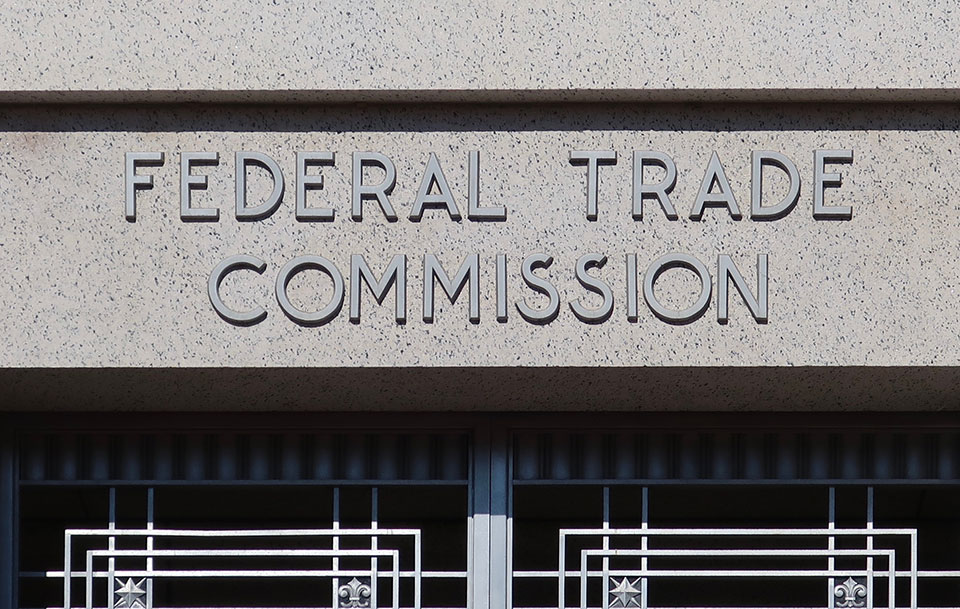High Stakes Testing at the FTC: The Challenges of Big Tech

Progressives (and in some cases conservatives) have been calling for more aggressive action by the FTC against Big Tech for a host of failing – from Google’s exploitation of the ad business to Amazon’s exploitation of warehouse workers and Facebook’s determined accumulation of private data. A full docket and then some. The result: a field test that will determine whether a newly aggressive FTC can handle the multiple challenges of Big Tech. The odds are against it.
Enter Lina Kahn. In a famous article written while at Yale Law School, she demanded a different and much more aggressive approach to antitrust, calling for a return to the principles outlined by Louis Brandeis before Robert Bork’s antitrust revolution that refocused antitrust on a single simple standard: are consumers being harmed, and is that harm measurable? That standard now dominates in the courts, and has largely underpinned FTC actions in recent decades.
Kahn argued that this standard is far too limited, especially in the complex world of multisided platforms. There, it’s not even clear who counts as a customer. After all, Facebook’s revenues come from advertisers, so are they the customers? But Facebook connects creators to consumers, so are the content creators its customers? And then of course there are the billions of users – Facebook certainly says that they are the customer.
The FTC must also show that a specific market is dominated by a monopoly. Just defining the market is a huge challenge. Is Amazon just part of the entire US retail market? Then it would just be a small player among many. Is the “market” online sales in the US? Then Amazon is very big, but probably controls not more than half. Is the Amazon platform itself a “market”? Possibly. Barely.
But even after defining a market, the FTC still has to show a monopolist at work there. That’s why the case against Facebook filed by the Trump Department of Justice was tossed by a judge who concluded that FTC had not demonstrated that Facebook was a monopoly. In a world where Twitter and Ticktock have billions of users, and other services like Spotify are quickly adding social media features, is Facebook really a monopoly?
Further, being a monopoly is not illegal. According to the FTC, “note that it is not illegal for a company to have a monopoly, to charge “high prices,” or to try to achieve a monopoly position by aggressive methods. A company violates the law only if it tries to maintain or acquire a monopoly through unreasonable methods.” So the FTC will have to show that companies acted to exclude competitors or prevent new entrants. That’s another high bar to meet.
Finally, many complaints about Big Tech are not about the abuse of monopoly powers at all. Progressives and conservatives both hate FB’s algorithms (for tolerating hate speech or cracking down on free speech, depending on your point of view). But deciding who speaks on Facebook is far beyond the control of the FTC.
Facing these challenges, Lina Kahn’s new FTC has three dimensions: first, she has called for much more aggressive enforcement within the FTC’s traditional mission – monitoring mergers, for example. This new aggression will be felt in a quicker trigger and lower bar for action, tougher negotiations, and much harsher penalties, likely including much bigger fines or even jail for executives. Where feasible, the FTC may seek to break up big companies, especially where acquisitions were a key to growth (here’s looking at you, Facebook). But all that is the easier part; it’s all within the existing scope of work for the FTC (though moving fast and breaking things has internal costs for the FTC as well).
Second, the new FTC aims to turn back the clock to before Bork. It will bring cases based on concerns beyond direct harm to the consumer, trying to find principles that can address the systemic impact of these enormous companies. Specifically, Kahn has argued that
“Antitrust law and competition policy should promote not [consumer] welfare but competitive markets. By refocusing attention back on process and structure, this approach would be faithful to the legislative history of major antitrust laws. It would also promote actual competition—unlike the present framework, which is overseeing concentrations of power that risk precluding real competition.”
Third, a more aggressive and expansive FTC will still likely not be enough. Kahn previously worked for Congress, and helped David Cicilline’s House committee produce a wide ranging report that trashed Big Tech companies via a massive barrage of complaints spanning the past two decades. Current law doesn’t let the FTC address many of these concerns. For example, Apple has decided that total device privacy is a neat selling point. Should that decision be Apple’s alone, in a world where law enforcement and national security arguments have been powerful? If not, who decides? How? Most of the biggest tech issues currently fall into the not-in-scope category.
Thus the shape of Kahn’s FTC is starting to emerge: much more aggressive enforcement of existing rules, efforts to expand the regulatory envelope by turning the clock back, and seeking more powers from Congress to address Big Tech activities that are currently beyond scope.
Will all this energy and effort actually undercut the relentless rise of Big Tech? In short, no. It won’t.
The new aggressiveness will make some difference at the margin, particularly for future acquisitions by Big Tech. But enforcement takes too long. Further, it addresses past behavior – which Big Tech discards the past in a blink of an eye: antitrust enforcement against Microsoft for tying its browser to its Windows operating system took a decade, and by the end was irrelevant with the rise of Chrome. And aggressiveness alone gets the FTC only so far: do we really care if Amazon is allowed to buy MGM? Does Amazon?
Turning back the clock could work, but that relies directly on receptive courts and hence judges. These simply don’t exist; Bork’s approach has increasingly guided antitrust for 40 years – for the entire professional lifetimes of every judge. Will they really agree to throw out this simple and transparent standard in favor of much vaguer alternatives? And will judges who are in general fairly conservative accept the progressive perspective that businesses by and large need much more regulation? The current Supreme Court certainly won’t.
That leaves Congress, But it’s beyond optimistic to hope that Congress will successfully address knotty issues like reform of Section 230 (which limits Facebook’s accountability for posts), or whether Amazon can compete with sellers on its platform. It’s almost uniquely unsuited to deal with complex issues of digital rights and digital markets.
Will the FTC field test succeed? The markets have already spoken: Big Tech stocks are booming. The markets don’t fear the FTC, and nor do the companies. The odds are getting longer daily. Yet the need for successful regulation is not going away, and if the FTC fails its field test it will simultaneously demonstrate that antitrust is not the right pathway to control our digital overlords, and to require that we find better alternatives. They are out there.
Written by Dr. Robin Gaster.
Bring the best of the CEOWORLD magazine's global journalism to audiences in the United States and around the world. - Add CEOWORLD magazine to your Google News feed.
Follow CEOWORLD magazine headlines on: Google News, LinkedIn, Twitter, and Facebook.
Copyright 2025 The CEOWORLD magazine. All rights reserved. This material (and any extract from it) must not be copied, redistributed or placed on any website, without CEOWORLD magazine' prior written consent. For media queries, please contact: info@ceoworld.biz








